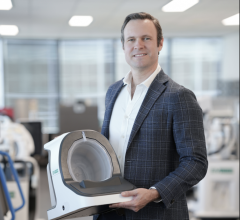
August 16, 2017 — The Centers for Medicare and Medicaid Services (CMS) announced a proposed rule to reduce the number of mandatory geographic areas participating in the Center for Medicare and Medicaid Innovation’s (Innovation Center) Comprehensive Care for Joint Replacement (CJR) model from 67 to 34. In addition, CMS proposes to allow CJR participants in the 33 remaining areas to participate on a voluntary basis. In this rule, CMS also proposes to make participation in the CJR model voluntary for all low-volume and rural hospitals in all of the CJR geographic areas.
CMS also is proposing through this rule to cancel the Episode Payment Models (EPMs) and the cardiac rehabilitation (CR) incentive payment model, which were scheduled to begin on Jan. 1, 2018. Eliminating these models would give CMS greater flexibility to design and test innovations that will improve quality and care coordination across the in-patient and post-acute-care spectrum. This includes care to patients who receive treatment for heart attacks, heart surgery to bypass blocked coronary arteries, or cardiac rehabilitation following a heart attack or heart surgery.
CMS has delayed these bundled payment initiatives twice since President Trump appointed Health and Human Services (HHS) Secretary Tom Price, M.D., and CMS Administrator Seema Verma, MPH. Both have been critics of mandatory bundled payments. Cardiac bundled payments were supposed to begin July 1, 2017 and were pushed back to Jan. 1, 2018.
The original intent of the bundled payments was to move away from traditional fee-for-service reimbursement to a fee-for-value model. The idea was to force hospitals to become more efficient in order to reduce their healthcare costs. The cardiac EPMs includes patients with myocardial infarction who undergo percutaneous coronary intervention (PCI) with or without stenting, and coronary bypass graft surgery (CABG).
“Changing the scope of these models allows CMS to test and evaluate improvements in care processes that will improve quality, reduce costs and ease burdens on hospitals,” said CMS Administrator Seema Verma. “Stakeholders have asked for more input on the design of these models. These changes make this possible and give CMS maximum flexibility to test other episode-based models that will bring about innovation and provide better care for Medicare beneficiaries.”
Moving forward, CMS expects to increase opportunities for providers to participate in voluntary initiatives rather than large mandatory episode payment model efforts. The changes in the proposed rule would allow the agency to engage providers in future voluntary efforts, including additional voluntary episode-based payment models.
The EPMs and the CR incentive models were designed as mandatory payment models and implemented via notice and comment rulemaking to test the effects of bundling cardiac and orthopedic care beginning in 2018. They were established by the Innovation Center under the authority of section 1115A of the Social Security Act (the Act).
“The American College of Cardiology will continue to work with CMS on opportunities for clinicians to participate meaningfully in Advanced Alternative Payment Models,” said American College of Cardiology (ACC) President Mary Norine Walsh, M.D., FACC. "As we move from volume-based care to value-based care, the path forward is challenging and we must work together to find solutions.”
At the Summer 2017 National Governors Association Meeting in July, Verma said CMS is starting a major deregulation initiative. She said the move is designed to make it easier for healthcare providers and states to spend more time and resources focusing on delivering care, and less time and resources trying to comply with complex regulations that do not meaningfully improve care, quality or safety. Read comments made by Verma and Price at the July meeting.
For more information on the Comprehensive Care for Joint Replacement Model, please visit: https://innovation.cms.gov/initiatives/cjr.
For more information on the EPM and CR models proposed for rescission, please visit: https://innovation.cms.gov/initiatives/epm
The proposed rule (CMS-5524-P) can be downloaded from the Federal Register at: www.federalregister.gov/public-inspection. Public comments are due by Oct.16 at 11:59 pm EST.
Related Bundled Payment Content:
HHS Finalizes Bundled Payments for Cardiac, Orthopedic Care
Radiology is Not Business as Usual
Federal Requirements for Clinical Decision Support for Imaging
Preparing for Cardiology Bundled Payments in 2017
VIDEO: MACRA's Impact on Cardiology — Interview with Kim Williams, M.D.
HHS Sets Clear Goals, Timeline for Shifting Reimbursements From Volume to Value


 July 30, 2024
July 30, 2024 








